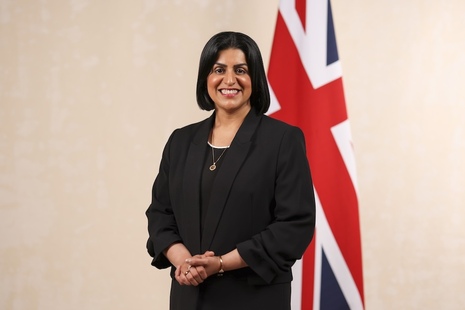Indefinite Leave to Remain Period to Double
In this update Leena Chouhan explains Indefinite Leave to Remain changes. First of all, in her first Labour conference speech as Home Secretary, Shabana Mahmood announced sweeping reforms. Indeed, these will affect the UK’s immigration and settlement system. Now, the headline change is a proposal to extend the qualifying period for Indefinite Leave to Remain (ILR) from five to ten years. Moreover, there will also be a series of new contribution-based tests.
Shabana Mahmood began her address by reflecting on her own family’s immigrant background and the contested nature of patriotism in the UK. She described a public mood of unease, with many feeling that immigration is “spinning out of control” after years of Conservative policies. Consequently, she stressed that her government will restore order, ensure fairness and maintain Britain as an open and tolerant country.
The Proposed ILR Changes
Under the new proposals, migrants will need to live in the UK for ten years before becoming eligible for ILR. As well, the Home Secretary confirmed that the government will launch a consultation on the reforms. Additionally, she outlined a series of conditions that applicants may be required to meet. Specifically, these include being in work, making national insurance contributions and not claiming benefits. Likewise she demands demonstrating a high level of English, holding a clean criminal record and contributing to community life through volunteering or similar activity.
Critically, The Home Secretary made clear that simply residing in the UK would no longer be sufficient to secure settlement. In fact, she said some migrants who make significant contributions could be allowed to settle sooner than ten years. Nevertheless, others may face longer waits. In certain cases, applicants who fail to meet the requirements could be refused settlement altogether.
Will the New Rules Apply Retrospectively?
For applicants, there has been some confusion over the Indefinite Leave to Remain new rules. In particular, surrounding whether the reforms will apply to migrants already living in the UK. Furthermore, the Financial Times reported that the changes would not be retrospective, while LBC suggested that the Home Secretary was considering emergency measures. To clarify, this will prevent around one million recent arrivals, particularly those who entered after 2021, from qualifying under the current five-year route.
Later reports in The Times indicated that retrospective application of the new “good citizen” tests would be too complex. Instead, the government may design a separate mechanism to delay settlement for those who arrived under the post-Brexit system. However, this is expected to be less strict than the forthcoming ten-year ILR regime.
Wider Immigration Policy Priorities
Mahmood also addressed broader concerns around border control and migration. She criticised the previous Conservative government for leaving a legacy of disorder, citing the rise in small boat crossings and abuse of work visa routes. Having confirmed her department will continue dismantling criminal gangs profiting from people smuggling, Mahmood seeks to reduce reliance on hotels housing asylum seekers.
She argued that restoring order at the border is essential if the UK is to remain open to genuine refugees and fair to those already living in the country. Also stressed was the importance of ensuring that immigration does not undermine British workers, promising tougher enforcement against illegal working and greater investment in training domestic staff where employers rely heavily on overseas labour.

05/07/2024. London, United Kingdom.Chancellor and Secretary of State for Justice, Shabana Mahmood. poses for a photograph following her appointment to Cabinet by Prime Minister Sir Keir Starmer in 10 Downing Street. Picture by Lauren Hurley / No 10 Downing Street
What Happens Next?
The government has promised to consult widely before finalising the ILR reforms. Alex Norris, the new Minister for Border Security and Asylum, confirmed in Parliament that public consultation will play a central role in shaping the final policy.
For now, the key message is that time spent in the UK alone will no longer be enough to secure settlement. Contribution, integration, and adherence to the rules will carry far greater weight.
What This Means for Migrants
For migrants planning to apply for ILR, the proposed changes represent a major shift. Those who entered the UK expecting to qualify after five years may find the path extended significantly. The additional tests also mean applicants will need to demonstrate not only long-term residence but also active participation in work, community, and civic life.
While the reforms are not yet law, migrants considering settlement should keep a close eye on developments. Legal advice may be essential to understand how the rules could affect individual circumstances, especially for those who arrived in the UK after 2021.
Conclusion
Labour’s proposed ten-year extension of the ILR qualifying period marks perhaps the most significant UK immigration change in decades. This move frames a response to public concerns over control, fairness and national identity. By linking settlement to work, language and community contribution, the government reinforces the principle that ILR must be earned.
For more information contact Leena at 02074275972 or email [email protected]
Disclaimer
Disclaimer: This article provides general guidance only and does not constitute legal advice. Always seek professional legal advice tailored to your specific situation before acting.